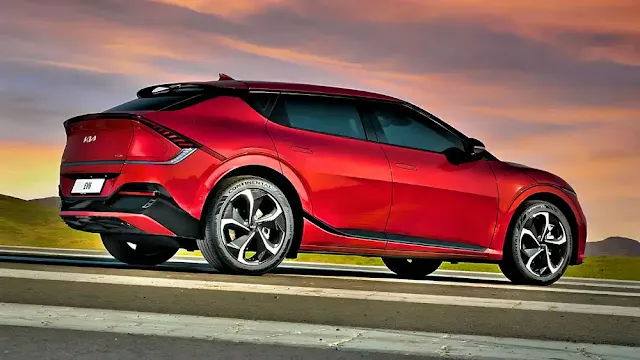Why You Should Choose an Electric Car
In recent years, the automotive industry has undergone a seismic shift towards sustainability, with electric cars emerging as the frontrunners in the quest for cleaner and more efficient transportation.
This article aims to provide a comprehensive overview of the advantages of electric cars over their petrol counterparts, shedding light on the technology behind these eco-friendly vehicles.
As we delve into the details, it becomes evident that electric cars are not just a futuristic concept; they are a tangible solution to the environmental challenges posed by traditional petrol-powered vehicles.
Environmental Advantages:
One of the primary reasons electric cars have gained widespread attention is their positive impact on the environment.Unlike petrol vehicles, electric cars produce zero tailpipe emissions during operation. This not only contributes to improved air quality but also plays a crucial role in mitigating climate change.
With global concerns about carbon emissions at an all-time high, the transition to electric vehicles represents a pivotal step towards a greener and more sustainable future.
Energy Efficiency:
Electric cars are renowned for their exceptional energy efficiency compared to traditional petrol vehicles.The conversion of electricity to power in an electric car is more efficient than the combustion process in internal combustion engines.
This efficiency is reflected in the distance an electric car can travel on a unit of energy, commonly measured in kilowatt-hours (kWh).
As a result, electric cars offer a higher miles-per-gallon equivalent (MPGe) compared to their petrol counterparts, translating to cost savings for consumers.
Reduced Running Costs:
Electric cars boast significantly lower operating costs over their lifetime when compared to petrol vehicles.With fewer moving parts, electric cars require less maintenance, reducing the frequency of visits to the mechanic.
The absence of oil changes, transmission repairs, and exhaust system maintenance further contributes to cost savings for electric car owners.
While the initial purchase price may be higher, the long-term economic benefits make electric cars an attractive and financially sound investment.
Government Incentives:
Governments around the world are actively promoting the adoption of electric vehicles through various incentives.These incentives, ranging from tax credits to rebates and reduced registration fees, make electric cars more affordable for consumers.
Additionally, some regions offer incentives for installing home charging stations, further encouraging the shift towards electric mobility.
The combination of financial incentives and the growing awareness of environmental issues has spurred an increase in electric car adoption globally.
Technological Advancements:
The rapid pace of technological advancements in the electric vehicle sector has led to significant improvements in battery technology.Lithium-ion batteries, the powerhouse behind electric cars, have become more energy-dense, lightweight, and cost-effective.
These advancements have resulted in increased driving ranges, shorter charging times, and overall enhanced performance.
As battery technology continues to evolve, electric cars are poised to become even more appealing to consumers, eliminating the range anxiety that has been a concern in the past.
Charging Infrastructure:
The development of a robust charging infrastructure is a critical aspect of the electric vehicle revolution.Governments and private entities are investing heavily in expanding the network of charging stations, making it more convenient for electric car owners to recharge their vehicles.
Fast-charging technologies have also emerged, reducing charging times significantly. The growing accessibility of charging infrastructure addresses one of the key challenges associated with electric cars, making them a viable and practical choice for everyday transportation.
Global Impact:
The widespread adoption of electric cars has far-reaching implications for global energy consumption and dependence on fossil fuels.As more countries transition to renewable energy sources, the environmental benefits of electric cars multiply.
Electric vehicles not only reduce greenhouse gas emissions but also contribute to the stabilization of global oil demand.
This shift away from traditional petrol-powered transportation marks a paradigmatic change in the global energy landscape, with electric cars playing a pivotal role in shaping a more sustainable future.
Future of Electric Cars:
Electric cars are poised to play an increasingly dominant role in the automotive industry. With advancements in battery technology, charging infrastructure, and government incentives, electric cars are becoming more accessible and attractive to consumers.As the world transitions towards a more sustainable future, electric cars are undoubtedly a key part of the solution.
Verdict:
In conclusion, the advantages of electric cars over petrol vehicles are multifaceted, encompassing environmental, economic, and technological aspects.The global shift towards electric mobility is not merely a trend but a strategic response to the pressing challenges posed by climate change and air pollution.
As governments, manufacturers, and consumers unite in the pursuit of a greener tomorrow, electric cars stand at the forefront of a transportation revolution.
The journey towards sustainable mobility is underway, and electric cars are steering us towards a cleaner, more efficient, and environmentally responsible future.




.webp)